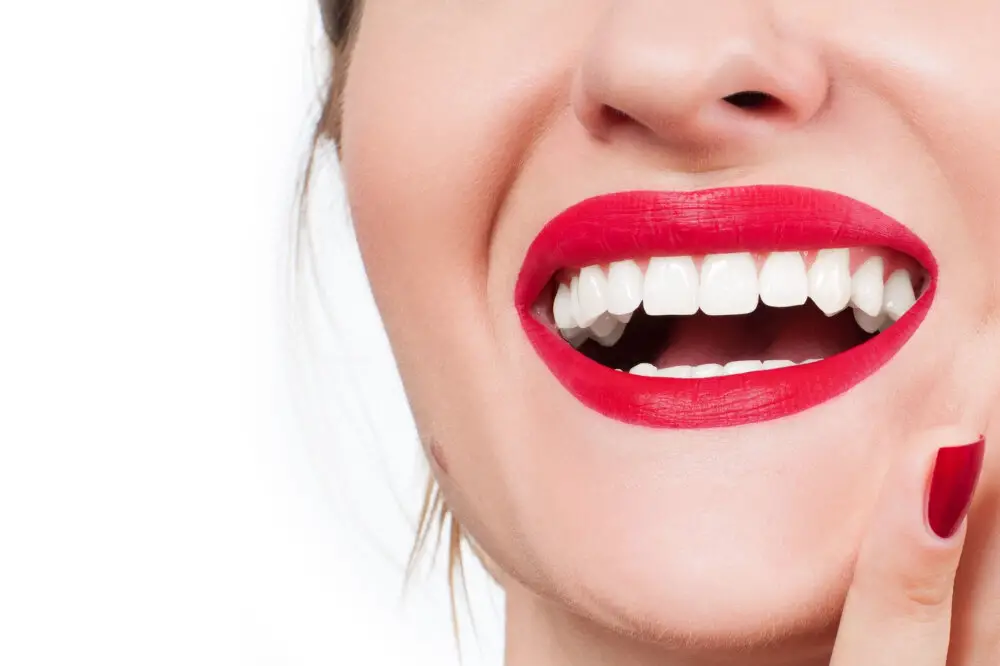Why Do Dogs’ Teeth Chatter? Understanding the Causes and Solutions

Dogs are fascinating creatures, and as much as we love them, sometimes we just can’t seem to understand their behavior. One such peculiar behavior is teeth chattering. It can be scary and confusing for dog owners, especially if you don’t know what it means or if it’s a sign of a serious health problem. However, teeth chattering is a common behavior in dogs, and it is important to understand the causes behind it to ensure the well-being of our furry friends. Teeth chattering is a rapid movement of the jaw muscles that produces a clicking sound. It is usually accompanied by other signs, such as trembling, shivering, or excessive salivation. While teeth chattering can be a response to cold temperatures or excitement, it can also indicate pain, anxiety, or dental problems. Understanding the causes of teeth chattering is crucial to determine whether it is a harmless behavior or a sign of an underlying health issue that requires veterinary attention. In this article, we will delve deeper into the reasons behind teeth chattering in dogs and provide solutions to help alleviate this behavior.
Teeth chattering in dogs refers to the rapid and involuntary movement of their jaws, creating a distinctive sound that is often associated with cold weather or anxiety. While some dogs may experience teeth chattering as a natural response to temperature changes, others may display this behavior due to stress, fear, or excitement. In some cases, teeth chattering may also indicate underlying dental problems or neurological disorders, which require prompt veterinary attention. Understanding the causes and solutions of teeth chattering in dogs can help pet owners provide appropriate care and support to their furry friends, ensuring their health and well-being.
Understanding the causes and solutions of dogs’ teeth chattering is crucial for pet owners. Teeth chattering in dogs can indicate a range of issues, from anxiety and fear to medical conditions such as dental problems, neurological disorders, or pain. It’s essential to identify the underlying cause of teeth chattering to provide the proper solution. Ignoring the issue can lead to severe health complications, behavior problems or worse, can put your dog’s life at risk. Therefore, it’s essential to consult with a veterinarian if your pet exhibits teeth chattering behavior. Understanding the causes and solutions of teeth chattering can help pet owners take better care of their furry friends and ensure their overall well-being.
Normal Reasons for Teeth Chattering

Teeth chattering is a common behavior observed in dogs, especially during cold weather or when they are anxious or excited. It is a natural way for dogs to regulate their body temperature and maintain warmth. When a dog’s body temperature drops, their muscles contract and relax quickly, causing their teeth to chatter. This is the same mechanism that causes humans to shiver when they are cold. Therefore, if you notice your dog’s teeth chattering on a chilly day, it is normal and nothing to worry about. Another common reason for teeth chattering in dogs is excitement or anxiety. When dogs get excited or nervous, they may start shaking or their teeth may chatter. This behavior is typically observed when dogs are anticipating something, such as going for a walk, meeting new people or animals, or receiving a treat. Similarly, dogs may also chatter their teeth when they are feeling stressed, scared, or anxious. In these cases, the teeth chattering is a sign that the dog is feeling overwhelmed and uncomfortable. It is important to pay attention to your dog’s body language and behavior to determine the cause of their teeth chattering and address any underlying issues.
Cold weather and excitement can both cause a dog’s teeth to chatter. In cold weather, a dog’s body will shiver in an attempt to generate heat and maintain a stable body temperature. This shivering can cause the dog’s teeth to chatter involuntarily. On the other hand, when a dog is excited or anxious, their body will release adrenaline, which can cause their muscles to contract and their teeth to chatter. It’s important for dog owners to understand the different causes of teeth chattering in their pets, as it can indicate discomfort or health issues that require attention. By observing their dog’s behavior and seeking veterinary advice when necessary, owners can ensure their furry friends stay healthy and happy.
Physical exertion or stress can be a common cause of teeth chattering in dogs. When a dog is overexerted or stressed, their body may release excess adrenaline, causing their muscles to tense and tremble. This can manifest in a variety of ways, including teeth chattering. Additionally, dogs may also chatter their teeth as a way to regulate their body temperature when they are too hot or too cold. If you notice your dog’s teeth chattering, it’s important to assess their environment and behavior to determine if they are experiencing physical or emotional stress. Providing a calm and comfortable environment, plenty of exercise, and engaging in training and socialization can help alleviate stress and reduce the likelihood of teeth chattering.
Dogs’ teeth chattering behavior is a common occurrence that can be caused by various factors. However, it is important to distinguish between normal and abnormal teeth chattering. Normal teeth chattering occurs when a dog is cold or excited. For instance, when a dog is cold, they may shiver, and their teeth may chatter to generate heat. Similarly, when a dog is excited or anxious, they may display teeth chattering as a sign of anticipation. It is worth noting that normal teeth chattering is usually short-lived and does not harm the dog’s health. Therefore, pet owners should observe their dog’s behavior carefully to determine the underlying cause of teeth chattering and respond accordingly.
Abnormal Reasons for Teeth Chattering

Teeth chattering in dogs is a common phenomenon that is often associated with cold weather, excitement or fear. However, there can be several abnormal reasons for teeth chattering that require immediate attention from a veterinarian. One of the primary causes of abnormal teeth chattering in dogs is dental issues. Gum disease, tooth fractures, and dental abscesses can cause pain and discomfort in the dog’s mouth, leading to teeth chattering. It is essential to keep a check on your dog’s dental health and ensure that they undergo regular dental check-ups to avoid such issues. Another abnormal reason for teeth chattering in dogs is neurological problems. Conditions like seizures, tremors, and epilepsy can cause the dog’s teeth to chatter. In such cases, the dog may also exhibit other symptoms like muscle spasms, loss of coordination, etc. It is essential to seek immediate medical attention if you notice such symptoms in your dog. A veterinarian can diagnose the underlying cause and suggest the appropriate treatment to alleviate the symptoms and improve your dog’s overall health.
Pain or discomfort is one of the main reasons why dogs’ teeth chatter. Canine teeth chattering is often an involuntary response to an uncomfortable situation, such as cold weather or anxiety. Chattering is a way for dogs to warm up their bodies, as the movement generates some heat. It is also a way for them to cope with stress and anxiety, as the rhythmic movement can be soothing. However, if dogs’ teeth chatter frequently, it may be a sign of a more serious underlying condition such as dental problems or neurological issues. It is important to seek veterinary advice if you notice excessive teeth chattering in your dog.
Dental problems or oral health issues are common among dogs, and can cause discomfort, pain, and even lead to severe health complications. Some common dental issues include plaque buildup, tooth decay, gum disease, and tooth loss. These conditions can be caused by poor oral hygiene, improper diet, genetic predisposition, or underlying health conditions. In addition to causing discomfort and pain, dental problems can also affect a dog’s overall health, as bacteria from the infected gums or teeth can travel through the bloodstream and affect vital organs such as the heart, liver, and kidneys. Therefore, it’s crucial for dog owners to take their pet’s dental health seriously and schedule regular dental checkups with their veterinarian.
Neurological disorders or seizures in dogs can be a serious health concern that needs immediate attention. These disorders can range from mild seizures to severe neurological diseases that can affect a dog’s ability to function normally. Seizures are often caused by abnormal electrical activity in the brain, which can be triggered by a variety of factors, such as exposure to toxins or infection. Symptoms of seizures in dogs can range from mild tremors to full-blown convulsions, and it is important to seek veterinary care immediately if you suspect that your dog is experiencing a seizure. Treatment for neurological disorders and seizures in dogs may include medication, changes in diet and lifestyle, or surgery, depending on the severity of the condition.
Identifying abnormal teeth chattering behavior is crucial to maintaining your dog’s dental health. While teeth chattering can be normal for dogs, especially when they are excited or cold, it can also be a sign of dental problems, pain or discomfort. If your dog’s teeth chatter excessively or seem to be in distress while doing so, it is important to consult with a veterinarian. They can examine your dog’s teeth and gums to determine if there are any underlying dental issues or other health concerns. Additionally, observing your dog’s behavior and environment can help you identify triggers for teeth chattering, allowing you to take steps to alleviate any discomfort or stress. Regular dental checkups and maintaining good oral hygiene can also help prevent teeth chattering and other dental issues.
Solutions for Teeth Chattering

Teeth chattering is a common problem among dogs, and it can be a sign of various underlying conditions. Some of the common causes of teeth chattering include anxiety, fear, cold temperature, and pain. One of the most effective solutions for teeth chattering is to identify the underlying cause and address it directly. For instance, if the dog is chattering due to fear, it is essential to provide a secure and comfortable environment for the dog to relax. You can also use calming aids such as essential oils, music, or pheromone sprays to help alleviate the anxiety. Another solution for teeth chattering is to keep the dog warm, especially during the cold season. You can use a dog coat, blankets, or heated pads to keep your dog warm and comfortable. Additionally, it is essential to ensure that your dog is well-fed and hydrated as hunger and dehydration can cause teeth chattering. If the teeth chattering persists, it is recommended to seek veterinary assistance to diagnose and treat any underlying health conditions. With proper care and attention, you can help alleviate your dog’s teeth chattering and ensure that they remain healthy and happy.
Understanding and addressing the underlying cause of teeth chattering in dogs is crucial in providing effective solutions. Teeth chattering can be a sign of various health issues, including anxiety, dental problems, and cold temperatures. Anxiety can be a result of various factors, such as separation anxiety, fear, or stress. Dental problems, including gum disease or tooth decay, can cause pain and discomfort, leading to teeth chattering. Additionally, cold temperatures can cause dogs to shiver, resulting in teeth chattering. Understanding the root cause of teeth chattering in dogs is vital in addressing the issue effectively. Once the underlying cause is identified, solutions such as providing warm blankets, dental treatment, or anxiety medication can be administered to alleviate the problem.
Dogs are known for their loyalty and companionship, and they often provide comfort and warmth to their owners. However, there are times when dogs themselves may feel cold or anxious, and this can cause their teeth to chatter. This behavior is common in small dogs or those with short hair, as they are more sensitive to changes in temperature. Additionally, dogs may chatter their teeth when they are nervous or stressed, especially in unfamiliar situations. As responsible pet owners, it is our duty to ensure our dogs are comfortable and warm, whether it means providing them with a cozy blanket or jacket, or calming them down with positive reinforcement and reassurance. Understanding the causes and solutions to dogs’ teeth chattering can help us better care for our furry friends and strengthen our bond with them.
Proper dental care and treatment are crucial for the overall health and well-being of dogs. Regular brushing of their teeth can prevent tartar buildup, which can lead to gum disease and tooth loss. It is also important to provide them with healthy food and treats that promote good dental health. In addition to preventive measures, dogs may require dental treatment if they have tooth decay or infection. This may involve professional cleaning, extractions, or root canals. It is essential to seek veterinary care if your dog exhibits teeth chattering or other signs of dental pain, as these may indicate underlying dental issues that require prompt attention. By providing proper dental care and treatment, you can help ensure that your furry friend has a healthy mouth and a happy life.
It is essential to seek veterinary attention when necessary, especially if you notice that your dog’s teeth are chattering. Teeth chattering can be caused by a variety of factors such as dental problems, anxiety, or pain. A veterinarian can examine your dog and determine the underlying cause of the chattering. If the cause is related to dental problems, the veterinarian can recommend a dental cleaning or extraction. If the cause is related to anxiety or pain, the veterinarian may recommend behavioral therapy, medication, or other treatments. It is important to address the issue promptly to prevent further discomfort or complications for your furry friend.
Prevention of Teeth Chattering

Teeth chattering is a common issue among dogs, which can be a sign of various underlying problems. However, prevention is always better than cure, and therefore, it is important to take the necessary steps to avoid teeth chattering in dogs. One of the most effective ways to prevent teeth chattering is by keeping your dog warm and comfortable. During the winter season, make sure to provide your dog with a warm and cozy bed and keep them away from cold drafts. You can also invest in a warm dog coat or sweater to keep them warm when they go outside. Another important factor in preventing teeth chattering is dental hygiene. Poor dental hygiene can lead to various dental problems, including tooth decay, gum disease, and tooth loss, which can cause teeth chattering in dogs. Therefore, it is important to brush your dog’s teeth regularly and schedule regular dental check-ups with your veterinarian. Additionally, provide your dog with dental chews and toys that can help remove tartar and plaque buildup, which can prevent dental problems and teeth chattering. By taking these preventative measures, you can help keep your dog healthy and happy, and avoid the discomfort and pain associated with teeth chattering.
Preventing dental issues in dogs is essential for their overall health and wellbeing. One of the primary ways to achieve this is through proper care and nutrition. Regular brushing of your dog’s teeth can significantly reduce the buildup of plaque and tartar, which can lead to decay and gum disease. Additionally, feeding your dog a balanced diet that is rich in essential nutrients, such as calcium and phosphorus, can help to strengthen their teeth and bones. Avoiding sugary treats and providing them with chew toys can also help to clean teeth and promote healthy chewing habits. By taking these preventative measures, you can help ensure that your furry friend has a healthy and happy smile for years to come.
Reducing stress and anxiety in dogs is crucial to their overall well-being. There are a variety of methods that can be used to help calm an anxious or stressed dog, such as providing a safe and comfortable space for them to retreat to when they feel overwhelmed, using calming pheromone sprays or diffusers, or engaging in calming activities such as gentle massage or exercise. It is important to identify the root cause of the stress and anxiety, such as separation anxiety or fear of loud noises, in order to effectively address the issue. In some cases, medication prescribed by a veterinarian may also be necessary to help manage the dog’s stress levels. By taking steps to reduce stress and anxiety in dogs, owners can help their furry companions lead happier, healthier lives.
Regular veterinary checkups and screenings are crucial for maintaining your dog’s overall health and well-being, including their dental health. During these appointments, your veterinarian will examine your dog’s teeth, gums, and mouth to check for any signs of dental issues such as tooth decay, gum disease, or infections. They may also recommend a dental cleaning or other treatments to address any problems. In addition, routine screenings for other health issues such as heartworm, parasites, and cancer can help catch potential problems early before they become more serious. By staying on top of your dog’s veterinary care, you can help ensure a happy and healthy life for your furry companion.
Teeth chattering in dogs can be a perplexing behavior for pet owners to witness. While it is a common reaction to the cold, it can also be indicative of an underlying issue that requires attention. Dogs may chatter their teeth as a means of regulating their body temperature or as a way to express anxiety or excitement. However, if the chattering is persistent or accompanied by other symptoms such as lethargy, lack of appetite, or difficulty eating, it may be a sign of dental problems, pain, or illness. Pet owners should pay close attention to their dog’s behavior and seek veterinary care if they suspect an underlying health issue.
Understanding the causes and solutions of a dog’s teeth chattering can greatly improve the overall health and wellbeing of our furry friends. Teeth chattering in dogs is often a sign of anxiety or stress, and can be caused by a variety of factors including cold weather, pain, fear, or excitement. It’s important to identify the root cause of this behavior in order to address it effectively. Solutions may include providing a warm and comfortable environment, addressing any underlying medical issues, or implementing behavioral training techniques to help reduce anxiety and stress. By taking the time to understand and address the causes of teeth chattering in dogs, we can help ensure our furry friends are healthy and happy.
Conclusion

In conclusion, dogs’ teeth chattering can stem from a variety of causes, including anxiety, excitement, and dental issues. As pet owners, it is important to pay attention to our furry friends and take note of any unusual behaviors or symptoms. Consulting with a veterinarian can help determine the underlying cause of teeth chattering and provide appropriate solutions, such as behavior modification techniques, dental care, or medication. By understanding the causes and solutions of teeth chattering in dogs, we can ensure the health and happiness of our beloved companions.






